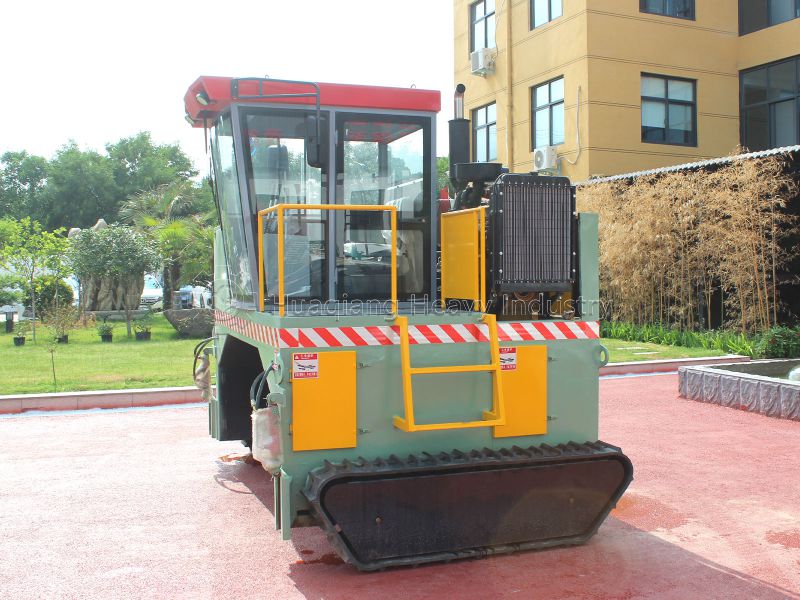What raw materials can be turned by windrow compost turning machines?
The windrow compost turning machine is key equipment in modern compost production. Its strong power, flexible steering, and deep turning ability have completely changed traditional composting methods.
1.Livestock Manure
Chicken Manure: Nitrogen-rich material; needs frequent turning to speed up fermentation.
Pig Manure: Thick and sticky; crawlers effectively break up clumps.
Cow Manure: High in fiber; requires strong turning for mixing.
Duck/Goose Manure: High water content; crawlers handle wet conditions well.
Key Point: Aim for 60% initial moisture. Add straw to adjust the C/N ratio.
2.Agricultural Waste
Crop stalks (corn, wheat), fruit/vegetable scraps (leaves, peels), spent mushroom substrate (mushroom bags, lingzhi blocks), etc.
Advantage: The windrow’s crushing action speeds up breaking down fibrous materials.

3.Organic Waste
Pre-treated food waste, garden waste (branches, leaves, grass clippings), sludge (from wastewater plants, moisture needs adjusting).
Special Handling: Adding bulking agents improves the mix structure.
4.Mixed Compost Ingredients
Organic-inorganic blends, biochar compost mixes, compost with added functional microbial agents.
Materials not suitable for windrow compost turning machines:
Lots of hard impurities (stones, metal, etc.).Very long, unshredded fibers (like whole sugarcane stalks).Extremely sticky materials (moisture >75% without adjustment).
The windrow compost turning machine works with almost all common organic wastes for composting. Matching the material’s properties to the machine’s settings can boost composting efficiency by over 30% and noticeably cut production costs.
